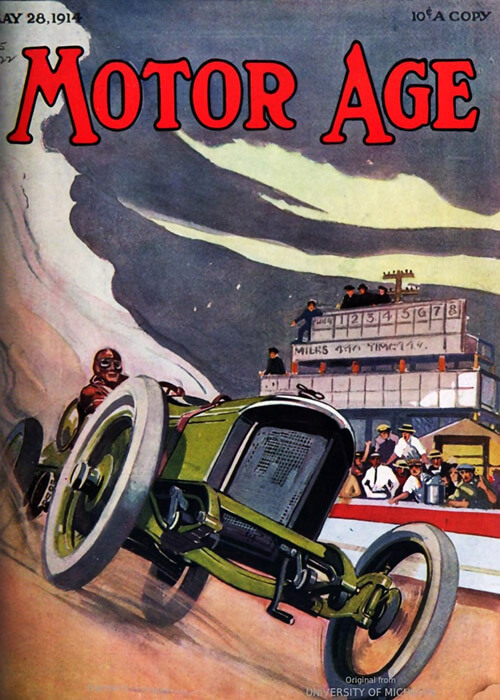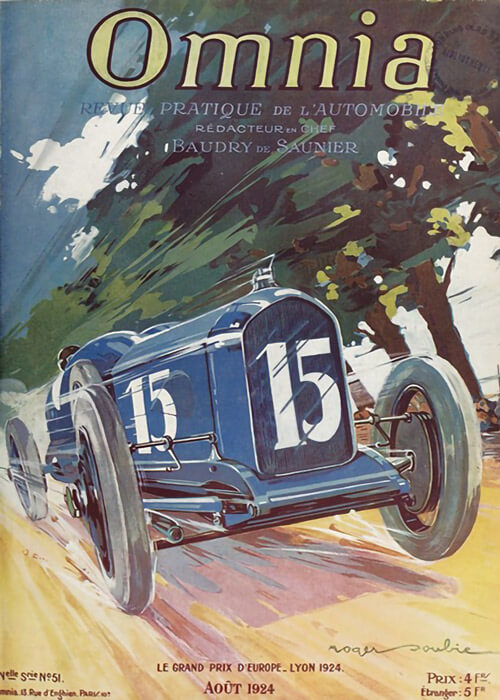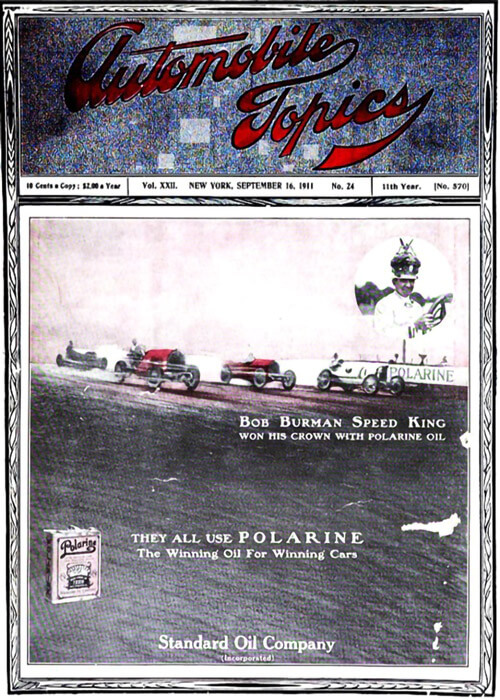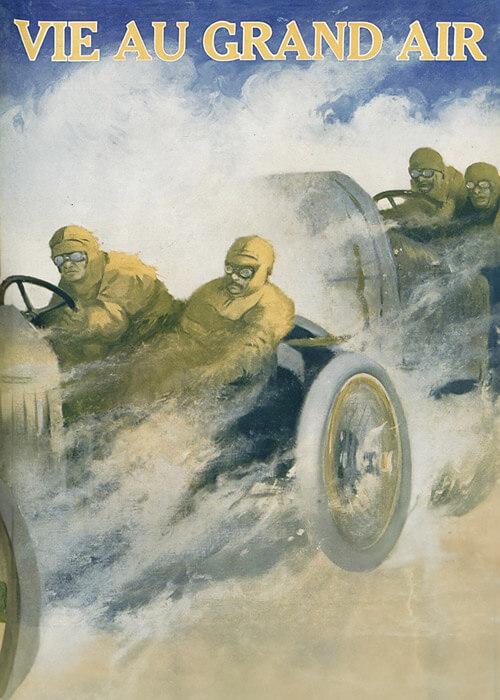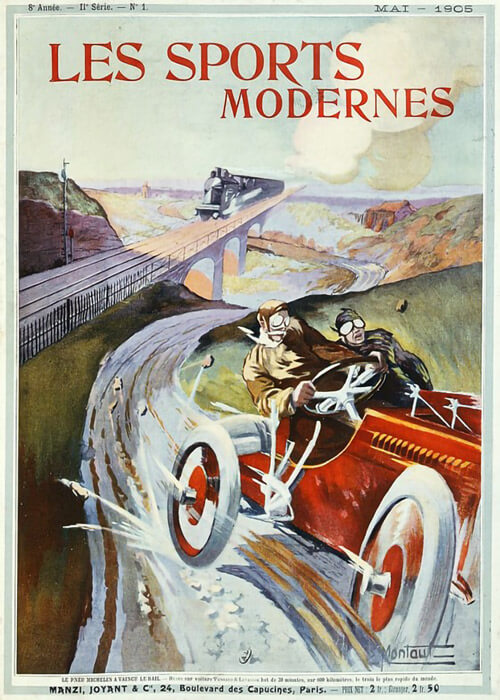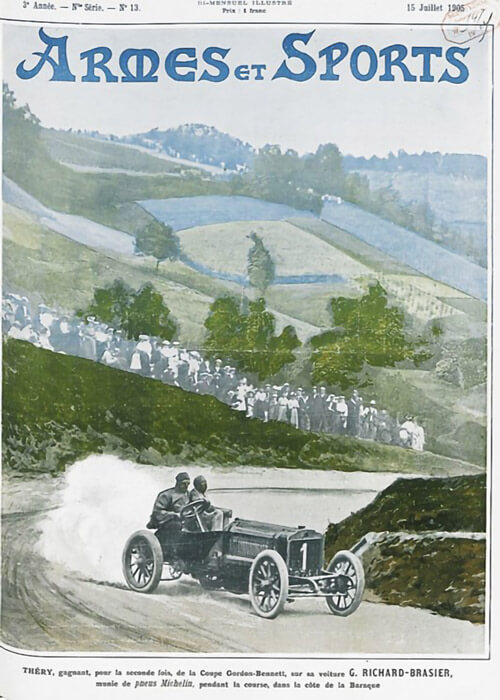Indianapolis 1921: When the “500” was not rated as the highlight for American built racing cars.
Saddened by the loss of their brother Gaston in the last race of the previous year, Louis and Arthur Chevrolet built two new cars for 1921, quite a difference with the 7-car flotilla of the year before. But a number of previous years’ four-cylinders were also entered again. The two new cars had entirely new engines. The Chevrolet brothers followed the trend to the multicylinder engines and had built their own Straight-Eight engine, still named Frontenac. A unique detail of the Frontenac Straight-Eight was the fairly small valve angle of the engine.
The total count of entered and qualified cars was still a meagre one; eventually the race started with 23 cars and drivers. There were 6 Frontenacs; part of the almost 2/3rd of the field that was not a Duesenberg! Among the 15 “Non-Duesy’s” were 5 European cars: two Peugeots, two Sunbeams and a single Ballot. And there was one car powered by an engine built by a certain Harry Miller.
The race of 1921 did have one innovation that has survived the times and is still a feature of the “500”. This was the first year in which the start grid was reduced to rows of three cars wide.
And what appeared to have become an annual tradition in recent years was retained. A little over the halfway point, Ralph de Palma, back in a Ballot (this year the only one in the field) was with some 5 minutes way out in the lead again. Since 1912 De Palma had led the most laps of all drivers ever on the track and had extended that number in just about every race he started. But this time the car quit on him after 112 laps. Ralph had the lead in 108 of those laps and had extended his number of laps leading the race extended to 612. Just think about that! The moment, De Palma retired, history had seen 1632 laps of racing at the IMS Speedway (1916 tolled only 300 miles) and 612 of them (or 37.5% !) were with Ralph DePalma leading the race!
With the “Fast Frenchy” driven by De Palma out of the race, it was up to the leading Duesenberg’s and Frontenac’s to battle for the lead. Eventually it was Tommy Milton who brought one of the two new Frontenacs as first car home.
What appeared to have been the first of some battles between flotillas of cars by the Duesenberg Brothers and the Chevrolet Brothers was done. One that held promise for the future. And it could have been the highlight event for the American race car builders, the one event of the year that was the best remembered of them all. As Indy had been before and would be so often in the years to come. But 1921 was to be different.
Because a little less than two months later another event was held, about which the coverage will be found back on this website as well. And the man and his car who had been classified 14th at Indianapolis scored a result in that particular event that, to this day, more than a century ago, is still rated as one of the highlight achievements ever scored by an American built racing car. One compared with which Indy winner Tommy Milton has to take a backseat. But all of that is covered elsewhere. YKW
Indianapolis 500 - 1921
The Horseless Age
MoToR
Motor Age
- Foreign Cars Strong Contenders in the Race - 19 May 1921
- Everything for Speed - 26 May 1921 - to come
- The Lineup for 1921 - 26 May 1921 - to come
- American Cars Dominate 500-Mile Race - 2 June - to come
- A Word Picture of the Big Race - 2 June - to come
- Service Lessons from the Pits - 2 June 1921 - to come
The Motor World
The Motor Way
Automotive Industries
- The Sunbeam Car for Indianapolis Race - to come
- Americans Sweep Indianapolis Race - 2 June 1921 to come
Automobile Topics
- Indianapolis Race Brings new Records - 4 June 1921 - to come
The Automobile Journal
La Science et Vie
- La Construction des Pistes Speciale - under construction
La Vie automobile
- Le Gagnante d'Indianapolis - to come
Le Monde illustré
- Le Meeting Automobile d'Indianapolis - to come
Omnia
- Le Vainquer Moral - to come
La Stampa Sportiva
L'Illustrazione italiana
Allgemeine Automobil=Zeitung
- Das Indianapolis Automobil-Rennen - to come
